Truthdigger of the Week: Chris McGreal
The success of societies depends on people who remember history and understand human nature, as Guardian columnist Chris McGreal does in his writing about the latest confrontation between Gaza and Israel.The success of societies depends on people who remember history and understand human nature, as Guardian columnist Chris McGreal does in his writing about Gaza and Israel.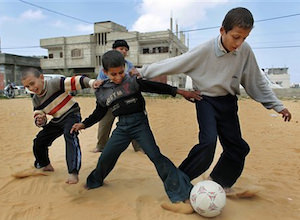
The success of societies depends on people who remember history and understand human nature, as Guardian columnist Chris McGreal exhibits in writing about the latest confrontation between Gaza and Israel.
In an article published Friday, McGreal, who was a correspondent for The Guardian in Jerusalem beginning in 2002, introduces readers to Abu Nizar, a young Palestinian and member of the Al-Aqsa Martyrs Brigade in Beach Camp, Gaza. Unlike his middle-aged father, Nizar was shaped by a childhood and adolescence of virtually endless fighting. As a result, he has grown up to be more militant than his father. So has much of the rest of his generation.
“Abu Nizar has never met an Israeli who wasn’t carrying a gun,” McGreal tells us. “Unlike his father, who travelled across the Jewish state to work different jobs, the 24-year-old has not spent a day outside the Gaza Strip, other than a brief sortie into Egypt.” Nizar does not want to know Israelis. “He just wants them to go away. And he is willing to fight them to make that happen.”
To Nizar’s mind, “all” Israelis are “occupiers, an enemy.” His disposition toward them is a direct and effectively irresistible consequence of his experiences. “One of the results of years of conflict,” McGreal writes, “is a generation of young adults on both sides who rarely meet each other except at the point of a weapon. The humanising experiences of middle-aged Palestinians and Israelis who had contact in everyday situations — such as Palestinians working in Israel who often learned Hebrew, or Israelis taking cars for repair by Palestinian mechanics or shopping in Arab markets — faded away with two intifadas and an ever more brutal occupation.”
The crucial result is the creation of a generation of Palestinians who view Israelis as monsters, rather than human beings. Nizar and his friends have never met an Israeli outside of a confrontation. They grew up throwing stones at soldiers, and, as early as age 7, if they were caught out of their homes past curfew, they were sometimes beaten. Their neighborhoods had the feeling of “perpetual combat zones.” Many, if not most of them, knew people who have been killed. And the conditions haven’t changed. Nizar and his peers are now raising a generation of children shaped by the same terrifying forces. “… [U]nder periodic barrages of rockets and shells, and perpetual siege,” they develop “their own perceptions of Israelis as a dehumanised enemy.”
“We didn’t have a normal childhood at all,” Nizar told McGreal. “The Israelis created a whole generation that hates them. They are idiots. This last war has doubled, trebled the hatred from kids today. … My three-year-old is always asking me: why is this? What’s going on? Why are there rocket blasts? I tried to tell him what’s happening and now he hates Israel.”
Usama Freona, a psychologist at a United Nations clinic in the Palestinian city of Rafah, says that growing up under such hostile conditions does not merely engender endless fear and anger. Some of the earliest memories of boys like Nizar were of Israeli troops beating and in other ways humiliating their fathers, uncles and older brothers. Seeing their own family members helpless to resist the aggression, Palestinian boys often lose respect for men who would otherwise serve as role models. They admire those who fight back instead.
Is it any surprise that boys like Nizar grow up to join the resistance? That they so commonly do is doubly unfortunate, McGreal writes, because it reinforces the notion, prevalent among some Israelis, that Palestinians are directed by their parents, teachers and imams to hate and plot violence against Jews. This belief enables Israelis to feed the cycle of violence.
“Israelis often tell themselves that Palestinian children are brought up on their mother’s knees to despise Jews, and as they grow up the hatred is piled on in schools and mosques. Some of that is true some of the time, but it is also a convenience for Israelis to absolve themselves of responsibility for why each generation of Palestinians seems more militant and more violent.”
Israelis and Americans should understand the role their governments play in fueling the “cycle of aggression” that drives so many young Palestinians into lives of desperate, implacable hostility. As McGreal makes clear, hatred of other groups is learned through repeated confrontation and trauma. It is not, as many of our leaders seem to insist, inborn. For sharing that crucial insight with his readers, we honor Chris McGreal as our Truthdigger of the Week.
— Posted by Alexander Reed Kelly.
Your support matters…Independent journalism is under threat and overshadowed by heavily funded mainstream media.
You can help level the playing field. Become a member.
Your tax-deductible contribution keeps us digging beneath the headlines to give you thought-provoking, investigative reporting and analysis that unearths what's really happening- without compromise.
Give today to support our courageous, independent journalists.

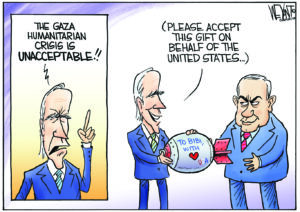
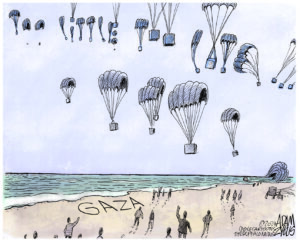
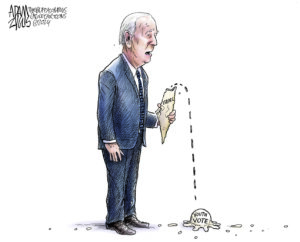
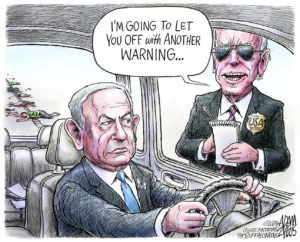
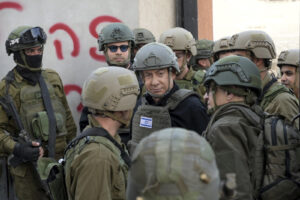
You need to be a supporter to comment.
There are currently no responses to this article.
Be the first to respond.